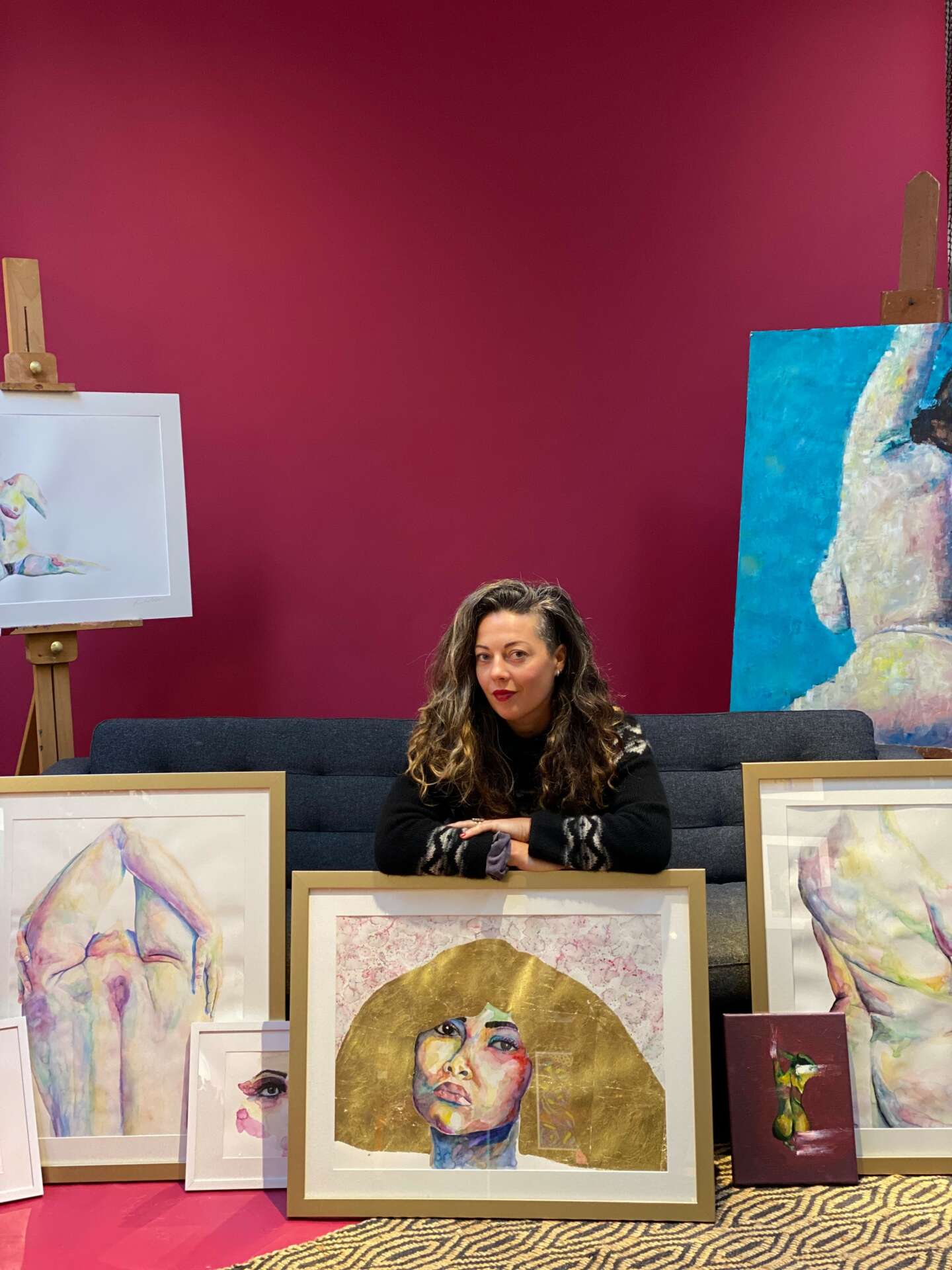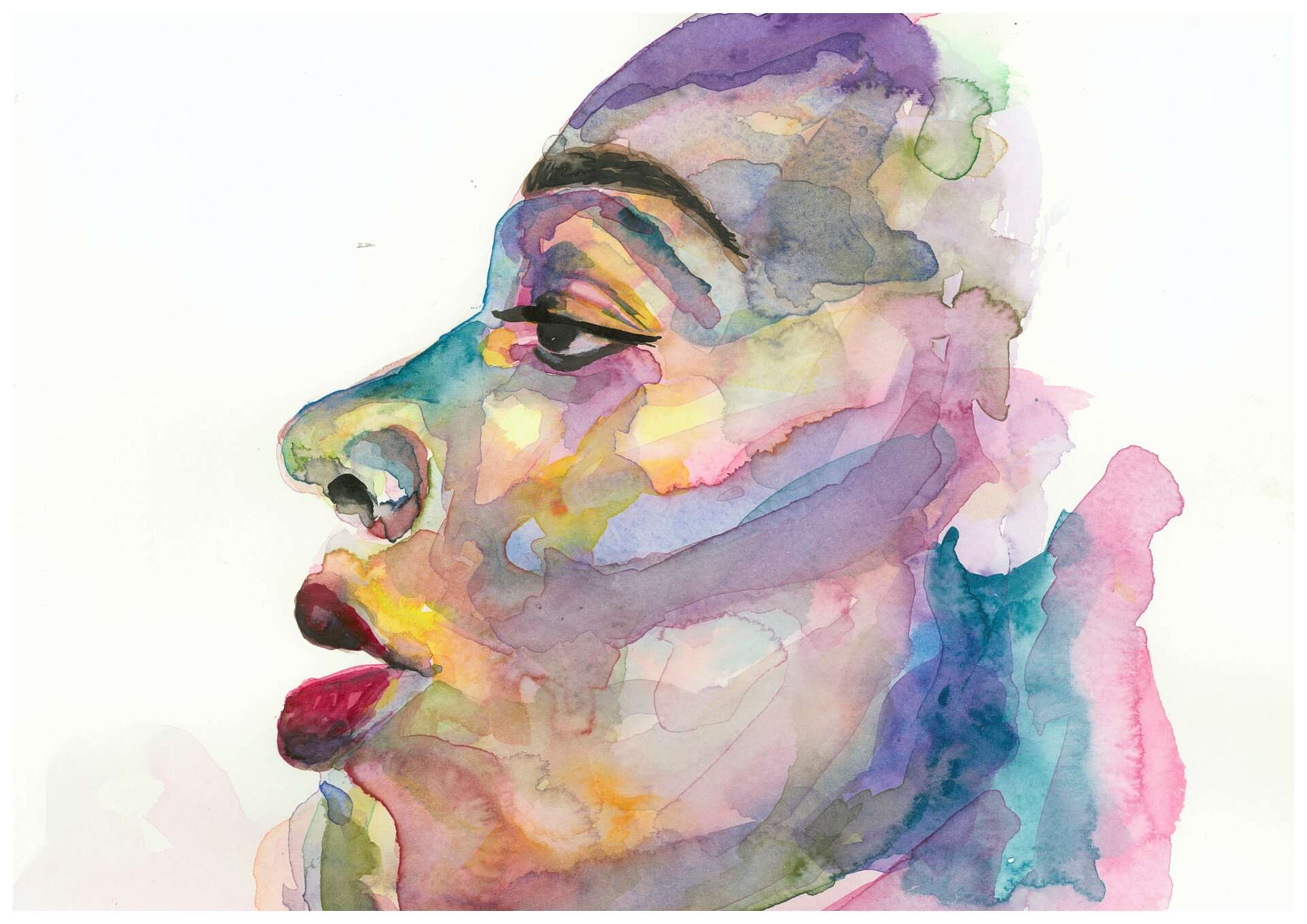We were lucky to catch up with Kate Campbell recently and have shared our conversation below.
Kate, thanks for taking the time to share your stories with us today Did you always know you wanted to pursue a creative or artistic career? When did you first know?
One of my earliest memories is sitting in my parents backyard with my friend and, both of us, loudly announcing we wanted to “Be Artists” when we grew up. I was about 5 years old at the time, and I only knew of three professions: lawyer, artist, or teacher. My father’s very close friend, Wendy, was an artist, and just about the coolest person I had ever met. Wendy told fanciful stories, wore big jewelry, laughed loudly, and seemed familiar to everyone in a way that was comforting and nice to be around. She was the first person to give me a set of oil pastels, and I always felt particularly special sitting in her studio with my pastels, while she had hers. For a lot of my youth I assumed I would pursue a creative path as an adult, but I lost a lot of my confidence to pursue something more culturally subversive as I got to college, and eventually I ended up working in business and then tech in San Francisco. About five years ago I felt like I was being pulled back to my creative side; I was writing a lot, I started bringing a small set of watercolors with me to parks, and I was particularly craving get out of a 9-5 role and having more variety in my day. During the pandemic I started painting fairly consistently. It was one of many hobbies I committed to while in lockdown, and while playing guitar and baking bread didn’t last, painting only became more and more what I craved to do.




Kate, before we move on to more of these sorts of questions, can you take some time to bring our readers up to speed on you and what you do?
My path to being an artist was, like many, non-linear. I spent a lot of years “should-ing” on myself; I should get a “real job”, I should have a plan for my life, I should care about job titles, etc. Through all of that, I never really felt content or at peace with the work I was doing, and found myself far away from the life I had imagined for myself. In 2016 I realized I had stopped doing a lot of the things I loved; writing and drawing in particular. It was until the pandemic though that I actually took a look around and realized how important it was to be more aligned with who I was and what I care about, and for my community to reflect that more as well.
I made a conscious decision to take my creative endeavors more seriously in 2020, when I started renting studio space from a local photographer. Initially it was just meant for me to have a place I could go that allowed me to develop my art skills, but eventually it became the first place I sold a piece, the place I would spend late nights painting, the place I would meet other creative people and be encouraged to call myself an artist, and a huge part of my creative identity. By 2022 I launched a website and decided I wanted to sell my art publicly, and build my own art business. My work centers on the female form, and capturing small moments where we inhabit intimate spaces. Maybe the way someone’s hands rest when they stretch, maybe a fold in a woman’s belly that they would otherwise be shy about, but have enough safety and intimacy to not be. I’m most proud at the stories I’ve received from women that have said “thanks for making me see myself as art.” Because we are art, all of us, and so many of us have these harsh lenses around our bodies being wrong in some way, or not enough, and there isn’t a better gift for me to receive than someone saying to me “you gave me a new lens to look at myself with”. I want it to be one full of love, and reverence, and generosity for the self.
We often hear about learning lessons – but just as important is unlearning lessons. Have you ever had to unlearn a lesson?
Painting, and my writing, has really forced me to unlearn concepts of “productivity”. I can’t structure creativity the way I could managing teams, or project management. While my creative practice is consistent, it’s not as if I create something I love every day and want to share with others. A painting can take me weeks to finish, and I have re-worked poems over many years. Initially it was extremely challenging reframing what a “productive” day was, because my prior work allowed for a sense of finality; emails sent, kick-off meetings complete, deadlines met, and that would give me a sense of accomplishment that was highly rewarding and energizing. While I still have deadlines for my work (commissions, shows, etc,), the reward for producing something comes in smaller bites, and when I was starting out my art business I really struggled to understand how much rest and solitude is needed for me to create. I think of my creative practice seasonally now; I know that when I feel a creative urge I need to drop other things and prioritize, because I don’t know when I will be called to it again. There are high seasons and low seasons, and I no longer panic in a low season that I’m blocked creatively, I just make sure that in those high seasons I am as prolific as I can be.




What’s the most rewarding aspect of being a creative in your experience?
Initially all my rewards were personal and selfish — it felt good to paint, I felt at peace with myself, and I was building a community I really loved. As my work has grown, all of those things are still true, but I think the messages from women that I get have really shown me how relatable and connected we are through our relationships to our body. Growing up in a female body comes with some universal experiences, good/bad/traumatic/enriching, etc. and while I don’t think body scrutiny is specific to one gender, I do think being socialized as a woman or girl sets you up to be hyper aware of your body at a very young age. In some ways I think we treat our bodies as enemies, always fighting against them or resenting how they make us feel. It’s very difficult to be gentle to something you don’t like, but we have been given a warped lens, and I like to correct that lens. Bodies are powerful, and capable, and strong, and soft, and our closest allies in many cases, and it’s unimportant for them to feel beautiful, but if a woman can see a body that looks like hers and see power and strength and softness, and maybe see beauty, but not be focused on beauty, I think that’s the best gift ever.
Contact Info:
- Website: www.katemariecampbell.com
- Instagram: www.instagram.com/inyourcompany
- Facebook: www.facebook.com/inyourcompany
Image Credits
Image Credits: Chloe Jackman Studios


